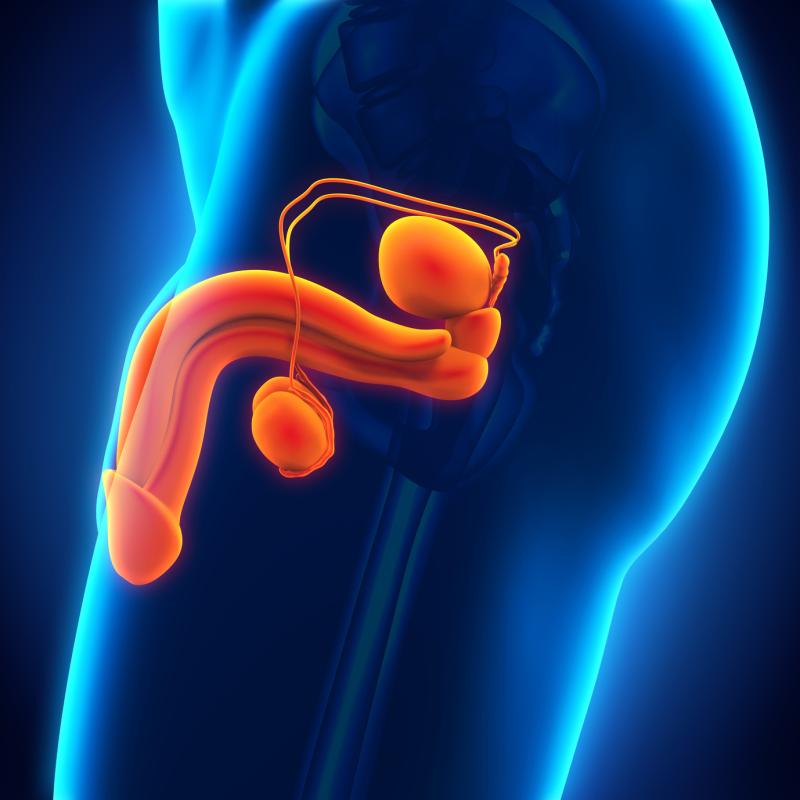Kidney Cancer in the Elderly
It is a malignant disease caused by the uncontrolled proliferation of abnormal cells in the kidneys. Kidney cancer in the elderly may not show any symptoms in the early stages. Significant symptoms may include bloody urine, back pain, weight loss and fatigue. Early diagnosis and treatment can significantly affect the course of the disease.
What are the symptoms of kidney cancer in the elderly?
 It usually causes pain in the side of the abdomen or lower back. This pain can often be constant and severe. However, in some cases, it can start out mild and become more severe over time. The pain may be caused by cancer growing in the kidney and pressing on surrounding tissues. One of the most common symptoms is bloody urine. Blood in the urine is usually noticeable as a change in color to a light red or dark brown.
It usually causes pain in the side of the abdomen or lower back. This pain can often be constant and severe. However, in some cases, it can start out mild and become more severe over time. The pain may be caused by cancer growing in the kidney and pressing on surrounding tissues. One of the most common symptoms is bloody urine. Blood in the urine is usually noticeable as a change in color to a light red or dark brown.
Bloody urine can be caused by tumors in the kidneys or urinary tract affecting the blood vessels. It can be caused by bleeding. A cancerous kidney can affect the urinary tract, causing a frequent need to urinate. In addition, there may be pain, burning, or discomfort while urinating. These symptoms can often be confused with a urinary tract infection. When they become a persistent problem, they can be a sign of cancer.
Kidney cancer in the elderly, It can form a mass or swelling in the kidneys and become palpable from the outside. This swelling usually occurs as a physical symptom of kidney cancer. It can be noticed especially when examining the patient's abdomen. It can cause loss of appetite and rapid weight loss. This weight loss can occur despite normal eating habits and occurs in an unexplained way.
Cancer patients often experience unexplained feelings of fatigue and weakness. This is due to the body rapidly depleting energy while fighting cancer. In the elderly, these symptoms can be distinguished from general age-related fatigue. Sometimes, it can manifest itself with systemic symptoms such as fever and night sweats. These symptoms may be related to the spread of cancer or to an immune response. It can affect the normal functioning of the kidneys, leading to anemia. Anemia can manifest itself with symptoms such as fatigue, pale skin color, and shortness of breath. Cancer can affect the functioning of the kidneys, which can lead to changes in urine output.
In particular, a significant decrease or increase in the amount of urine can be observed. It can cause swelling in the feet and legs by causing fluid accumulation in the body. This may be due to the kidneys' impaired ability to regulate fluid balance. In the event of advanced cancer, symptoms such as paleness or bruising of the skin may occur. This may be due to deterioration in the body's oxygen-carrying capacity. Kidney cancer symptoms in the elderly It can often be confused with other health problems associated with aging. Therefore, regular health check-ups are important for early diagnosis and treatment. If you experience some of these symptoms, it is recommended that you consult a specialist.
What Causes Kidney Cancer in the Elderly?
Individuals with a family history of the disease are at higher risk. Genetic predisposition and some familial cancer syndromes can increase the risk of kidney cancer. It is more common in older individuals. Advanced age increases the risk of developing cancer due to cellular changes and the accumulation of DNA damage. Smoking can increase the risk. Tobacco products can cause harmful chemicals to accumulate in the kidneys. Excess weight and obesity can increase the risk. Factors such as excess body fat and hormonal imbalances affect this risk. High blood pressure can increase the risk.
Long-term high blood pressure can cause damage and changes in the kidneys. Chronic kidney disease can cause long-term damage and inflammation in the kidneys. This can set the stage for cancer development. Long-term exposure to certain chemicals, especially industrial chemicals, increases the risk. Previous medical treatments that used radiation may increase the risk. Kidney cancer in the elderly Early diagnosis and treatment are important to maintain health. Regular health check-ups and management of risk factors can help prevent this type of cancer.
What are the Treatment Methods for Kidney Cancer in the Elderly?

Kidney cancer in the elderly It is not usually treated with chemotherapy. However, in some cases, especially when other treatments have not been effective, it can be used. Drugs that target the growth and spread of cancer cells are used. This treatment is generally well tolerated in older patients and may have fewer side effects.
Immunotherapies stimulate the immune system to fight cancer cells. In recent years, these treatment methods have shown promising results in kidney cancer. Palliative care practices aim to improve quality of life and manage symptoms. If the patient's general health is very poor or the cancer is slow-growing, treatment is applied with regular monitoring and follow-up. Kidney cancer in the elderly When creating a treatment plan, a personalized treatment plan provides the best results.






